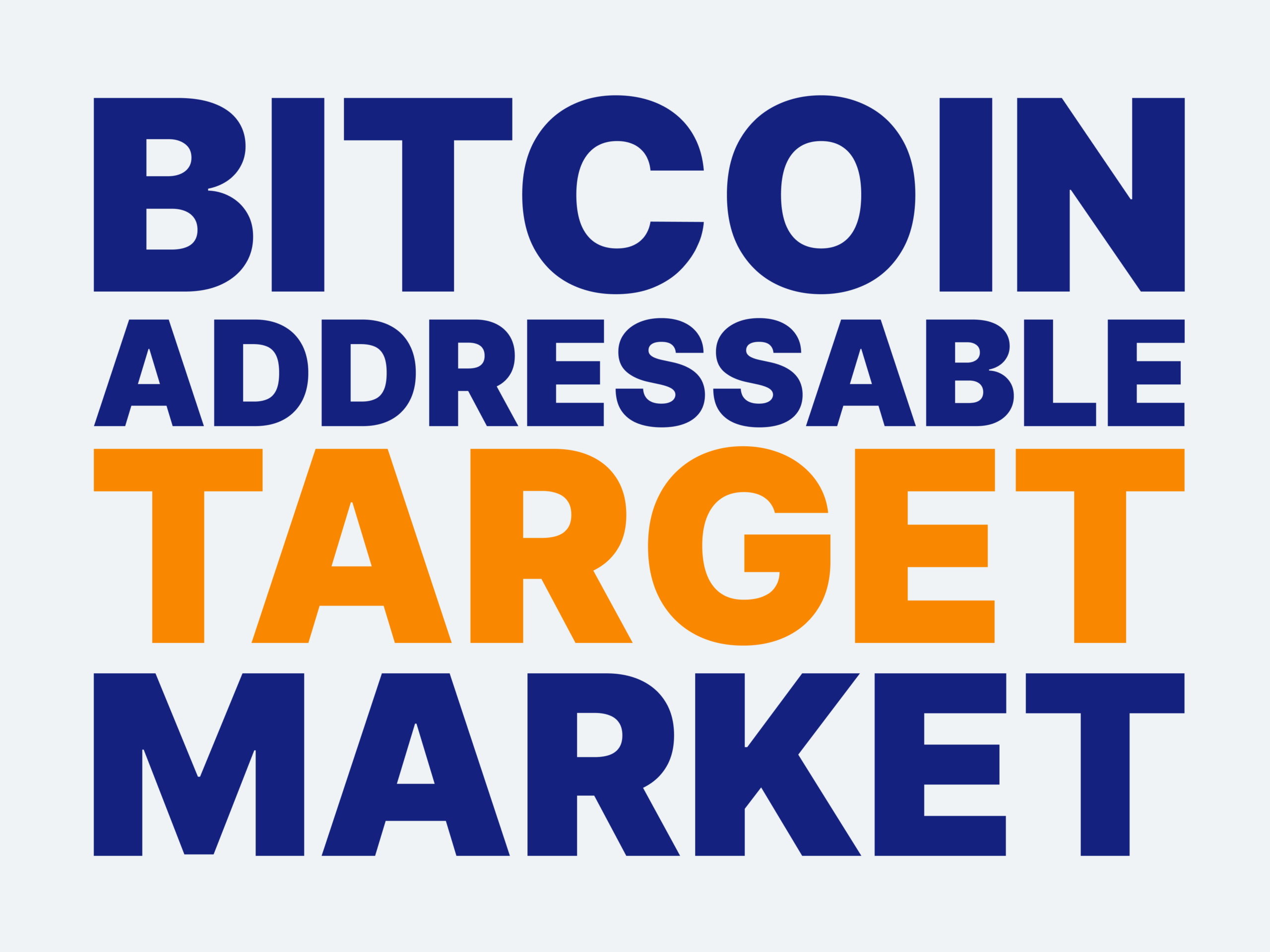
Bitcoin is geared towards one or more addressable target markets. Taking a closer look at these target markets is of great importance when it comes to evaluating Bitcoin and analyzing its price.
In this article, we will take a closer look at the size of the different target markets and how widespread Bitcoin & other cryptocurrencies are already in these markets.
Medium of Exchange and Unit of Account
A medium of exchange is an intermediary instrument or system used to facilitate the sale, purchase, or trade of goods between parties. For a system to function as a medium of exchange, it must represent a standard of value. Using a medium of exchange allows for greater efficiency in an economy and stimulates an increase in overall trading activity. If we consider all of Bitcoin currently being used for this purpose, this gives us a current market penetration of 0.13 %.

Offshore Accounts
The Tax Justice Network estimates that governments lose $189 billion a year from $21–32 trillion in offshore accounts of private wealth. The International Monetary Fund estimates tax evasion to be approximately $12 trillion a year globally. The Satis report analyzed the target addressable markets for the entire cryptoasset market and found that the total implied market cap to be $3.6 trillion by 2028 using a similar equation of exchange model to the one developed in this research report. According to the Satis report, the major application of Bitcoin & cryptocurrencies is offshore deposits. They estimate Bitcoin will penetrate approximately 91 % of the offshore deposits market during the next decade.
Although the Satis report uses “offshore accounts” and “tax evasion” synonymously, offshore accounts can also be used for non-illicit purposes such as opening up a business abroad and earning income.

Reserve Currency
Reserve currencies are foreign currencies held by central banks. They grease the wheels of international commerce by helping countries and businesses conduct transactions using the same currency, a much simpler task than settling transactions involving different currencies. Their popularity is easy to see: Between 1995 and 2011, the amount of currency held in reserve increased by over 730 %, from around $1.4 trillion to $10.2 trillion. Currently, reserve currencies sit at around 11.7 trillion and no central bank has officially admitted to holding any cryptocurrency in its reserves.

Store of Value
As shown in Table 2, the target addressable market for stores of value is over $7 trillion. This figure mostly comes from the global market capitalization of gold. However, people also store value in fiat currency. The US dollar alone has a market capitalization of $3.8 trillion, which is 20 times larger than Bitcoin’s market capitalization. If we consider that store-of-value seekers don’t move their bitcoin often, we can see that around 11 million BTC have not moved in nearly a year. It is worth noting that this amount inevitably includes some lost keys. As of the time of writing this report, this accounts for around $98.6 billion or a 1.4 % penetration.
Online Transactions
According to a report on the digital payment market by Mordor Intelligence and data from Statista, online transactions account for between $4.4 trillion and $3.4 trillion per year. The research firm Chainalysis estimates that Bitcoin & cryptocurrency commerce transactions account for $6 million daily. This means that cryptocurrency payments have not even penetrated 1 % of online transactions. However, according to the same report by Chainalysis, the amount of digital money sent to 16 merchant service providers rose 65 % between January and July of 2019.
Brick and mortar commerce, online e-commerce, casinos, and tax collectors all need a payment processor to handle the currency risk of accepting Bitcoin & cryptocurrencies. For this reason, software and hardware point-of-sale (PoS) systems are an interesting business model that has an increasing demand.

In addition, to be used in brick and mortar stores and for online shopping, cryptocurrencies are also spent online on illegal goods and services. According to Chainalysis, darknet trading volume was estimated to be as high as $700 million in 2017 and $600 million in 2018.
Remittance
In 2018, migrants in various parts of the globe sent upwards of $613 billion to their home countries. However, the use of traditional banking services means high transaction fees and slow processing. The Philippines, which is one of the world’s top remittance markets, already has solutions like Coins.ph that uses crypto and blockchain technology that allow individuals to send money home with lower fees. Many remittances are being conducted via Bitcoin ATMs that have remittance features enabled.

Tax Evasion
The original ethos of Bitcoin was libertarian, and that attitude still prevails in the industry. It’s no surprise that some Bitcoin users aren’t fully reporting their gains and that some tax evaders adopt Bitcoin & cryptocurrencies for this purpose. Each country has a unique level of tax evasion, and that level is dynamic over time and depends on variables such as tax rates, public debt amount, history of nationalization of industries, culture, etc.
Tax evasion by institutions and HNWIs will be more likely to target privacy coins and low-volatility coins such as stablecoins and Bitcoin rather than physical fiat cash because of the sums involved. However, black markets in countries where this is heavy inflation in the domestic currency are more likely to switch to cryptoassets.

Looking at all those different target markets, Bitcoin could capture a $1247 Trillion market in the future, a significant jump from its current $200 Billion market cap.
For an even deeper analysis, please check out the original paper written by our amazing Advisor Demelza Hays from our partners Crypto Research Report:
https://cryptoresearch.report/crypto-research/addressable-target-markets-for-cryptocurrencies/
Information about the author







